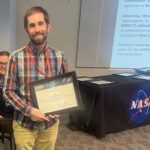A cross-section of media synopsis articles on the United Nations “Rio +20 Conference on Sustainable Development” are provided below. The conference held in Rio de Janeiro, Brazil (June 20-22, 2012) was an international effort aimed to reduce poverty, advance social equality and ensure environmental protection, according to the conference website.
Publication – ThinkProgress
Date: June 13, 2012
“As Rio+20 Begins, Revisiting The Words Of Severn Suzuki: ‘Make Your Actions Reflect Your Words‘”
It was 20 years ago this month that Severn Suzuki, then 12, became “the girl who silenced the world for six minutes.” As she stood on the podium at the first United Nationals Conference – facing dignitaries from 178 nations – Severn’s 6-minute statement also became the speech of her generation.
The confernce in Rio de Janeiro, Brazil focused on sustainable development, and heads of state, delegates and negotiators from 178 nations assembled to consider how humankind and the rest of the natural world could co-exist.
Ten years later, Severn recalled the experience and assessed the world’s progress in a column for TIME magazine:
“I am only a child,” I told them. “Yet I know that if all the money spent on war was spent on ending poverty and finding environmental answers, what a wonderful place this would be. In school you teach us not to fight with others, to work things out, to respect others, to clean up our mess, not to hurt other creatures, to share, not be greedy. Then why do you go out and do the things you tell us not to do? You grownups say you love us, but I challenge you, please, to make your actions reflect your words.”
I spoke for six minutes and received a standing ovation. Some of the delegates even cried. I thought that maybe I had reached some of them, that my speech might actually spur action. Now, a decade from Rio, after I’ve sat through many more conferences, I’m not sure what has been accomplished. My confidence in the people in power and in the power of an individual’s voice to reach them has been deeply shaken.
Publication – NewsWise
Date: June 18, 2012
“Citizens Call on Leaders to Commit to Fossil-Fuel Subsidy Reform at Rio+20“
Some 60,000 citizens from 192 countries cast 1.37 million votes to identify their priorities for a sustainable future. Voting on the economics of sustainable development, the number one recommendation was to “phase out harmful subsidies and develop green tax schemes.” On the issue of sustainable energy, the top vote was “concrete steps to eliminate fossil-fuel subsidies.”
“Globally, governments spend at least $1.4 billion a day subsidizing fossil fuels. In a time of economic austerity and environmental crisis, it is clear that governments need to rethink their priorities. Fossil-fuel subsidies are a very good place to start,” Mark Halle, European director of the International Institute for Sustainable Development, told NewsWise.
Publication – Washington Post
Date: June 19, 2012
“As Rio summit commences, Americans see environment deteriorating“
A June 19 Washington Post poll showed that most Americans think the world’s natural environment has deteriorated over the past decade, and more than six in 10 say humans are making the problem worse.
According to the article, “Negotiators produced a final text Tuesday for heads of state to vote on this week, calling for a new emphasis on the economic value of the natural world; although it came under intense criticism from many civil society groups as being weak and lacking concrete goals and timetables.”
Perhaps more significantly, Coca-Cola pledged to develop plans to protect the water sources for its 200 bottling plants worldwide, while Dow Chemical said it will assess the economic value it gets from the ecosystems connected to its new bioplastics plant in Brazil. The commitments did not stop there, however, as the eight largest multilateral development banks pledged to invest $175 billion over the next decade to finance more sustainable transportation systems in developing countries, and Maldives President Mohamed Waheed announced that he would make all of his country’s waters a marine reserve.
“The actual negotiations in Rio have produced little of substance, beyond an abstract commitment to craft “sustainable development goals” in the future. The Brazilian government, which is hosting the meeting, took out language which would have committed countries to reaching three U.N. goals by 2030: ensuring universal access to electricity and heating; doubling the global rate of energy efficiency improvement; and doubling the share of renewable energy in the global energy mix” according to the article.
Publication – AlertNet
Date: June 20, 2012
“Diplomats agree on ‘weak’ text for Rio+20 summit“
Diplomats from over 190 countries agreed on a draft text on green global development on June 19 to be approved at the Rio+20 Conference, but environmentalists complained the agreement was too weak, according to AlertNet.
The summit was supposed to hammer out aspirational, rather than mandatory sustainable development goals across core areas like food security, water and energy, but the draft text agreed upon by diplomats failed to define those goals or give clear timetables toward setting them.
It is “telling that nobody in that room adopting the text was happy. That’s how weak it is,” the European Union’s climate commissioner Connie Hedegaard stated on Twitter.
The text “has too much ‘take note’ and ‘reaffirm’ and too little ‘decide’ and ‘commit’. (The) big task now for U.N. nations to follow up” on this, she added.
Expectations were low for the summit, according to the article, because politicians’ attention is more focused on the euro zone crisis, a presidential election in the United States and turmoil in the Middle East than on the environment.
Observers did not expect major amendments to the text during the three day summit, according to AlertNet.
U.S. special envoy for climate change, Todd Stern, told reporters that he did not expect the document to change much after heads of state meet to discuss it.
“We don’t have anything that we are expecting to try to drive into the document that is not there yet,” Stern said.
Publication – Yahoo! Finance
Date: June 20, 2012
“Rio: pollution rife during UN enviro conference“
With Rio’s airport situated by a bay that absorbs about 320 millions gallons (1.2 billion liter
s or 480 Olympic swimming pools) of raw waste water a day, the crowds of people streaming into the city will be met by the stench of raw sweage.
As they head into the city, they will find soda bottles bobbing on the water, colorful detritus covering the shore, discarded television sets and couches and broken toys snarled in plastic. “They will likely get caught in a traffic jam, peering out at the acrid haze of diesel fumes and exhaust from the commercial port that lingers over the city”, according to the article.
The United Nations Environment Program warned this month that the planet’s environmental systems “are being pushed towards their biophysical limits,” and for the visitors from more than 190 countries streaming in for the Rio+20 Conference, the adverse conditions will serve as a reminder of just how hard it will be to balance economic growth and environmental protection elsewhere across the globe.
“Rio, the host city, has a range of urban problems: air and water pollution, social exclusion, water supply,” Carlos Bocuhy, who heads the Brazilian Institute of Environmental Protection, told the Associate Press. “But what we have here is a crisis in a civilizational model. We are nearing a moment when all these crises will start feeding into each other. We are facing the possibility of collapse if we don’t change course.”





